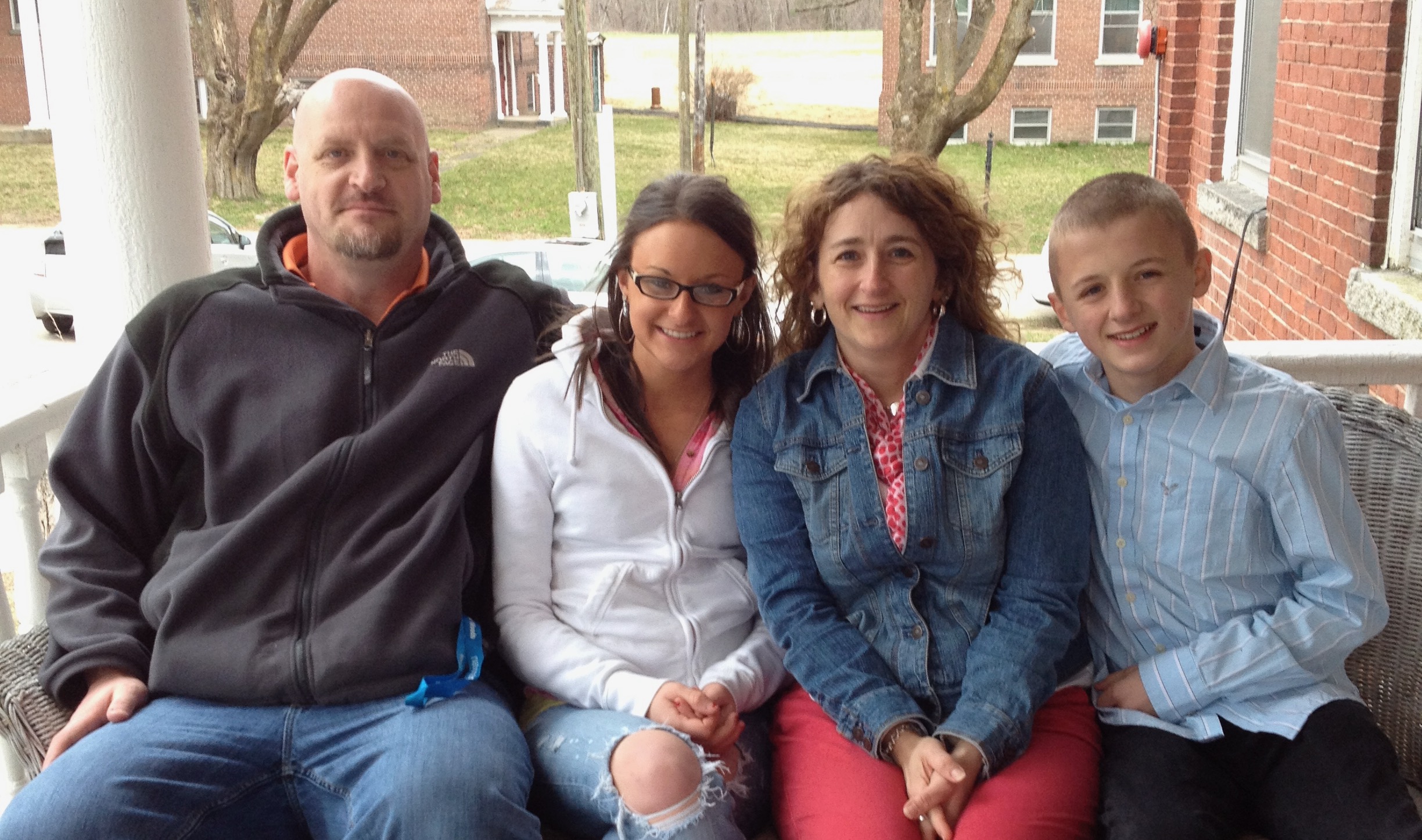
Peer Grief Helper Profile: Michelle Dunn
By Kerry J. Bickford, VOICES Editor
In late 2010, when Michelle Dunn realized her daughter was in trouble with drugs, she began to attend Learn To Cope meetings and did what she could to support her. But as she threw herself into managing Alyssa’s disease while working full time and raising Alyssa’s younger brother, everything she thought she knew about substance use disorder was challenged. She began to realize it was much more complicated than she had ever imagined.
By 2012 Michelle decided to attend a five-day recovery coach academy in Maine, thinking it might help provide a deeper understanding of what Alyssa was dealing with, while guiding Michelle in appropriate ways to support her daughter. It didn’t. Alyssa continued to struggle until she overdosed on May 18, 2013, and was subsequently placed on life support. Over the next few days, her parents and brother, Jamison, remained at her side in the hospital. They vowed from that moment on to speak up about addiction and form a foundation in Alyssa's name to help educate others about substance use disorder and the pervasive stigma and barriers.that surround it. When Alyssa died three days later, on May 21, her family was adamant that her death would not be in vain, and were committed to honoring her life and her struggle.
In 2014, the A.E.D. Foundation (AED) was formed, and while the acronym represents Alyssa’s name (Alyssa Elizabeth Dunn), it also stands for ASSIST (families, people in recovery); EDUCATE (the community on the disease of addiction); and DEFEAT (the enemy – stigma). The foundation also provides financial and other assistance to help increase access to long-term recovery and reduce drug-related deaths.
By 2015 Michelle and Joyce Fletcher, another bereaved mother, were hosting her community’s first International Overdose Awareness Day (IOD) event on August 31st, which has grown each consecutive year to become “a huge annual event.”
IOD Night of Hope features a memorial ceremony and video with bereaved speakers along with several recovery speakers to kick off recovery month in September by telling their stories of recovery and hope. Additionally, Michelle started a peer grief group called H.A.L.O-15 which was held once monthly at a local Community Health Center. Unfortunately due to the COVID pandemic, attendees were not interested in a virtual meeting and the group is not meeting at this time
By 2017, Michelle had obtained her CARC (certified addiction recovery coach) while working at Work Inc – a program that reduces employment barriers for people with disabilities. She began coaching people in recovery and discovered that they were not receiving enough support. She speaks passionately about how employment gives people in recovery a purpose and helps reduce the shame and stigma that the structure of our society imposes on them. Although she had spent over 16 years working for this company, she felt ready to do something different. The Chief Operating Officer at GAAMHA (also an A.E.D. director and friend) approached her about a newly formed position at GAAMHA as Director of Community Engagement- Substance Use Disorder Services. Michelle was finally able to put her combined skills and experience into practice by working with the recovery community.
Meanwhile, Michelle, and the AED board of directors, with support from her family and the Greater Gardner Community, wasted no time opening Alyssa’s Place, a peer recovery center that initially began with an all-volunteer staff. However, by 2019, BSAS funding allowed them to hire a program director, an activities director, and four other support staff positions. Michelle recalled a story about a young man who had been incarcerated and was released to his home with no support before the recovery center opened. Weeks later, he died on a park bench in front of the hospital. “The need is great in Central Massachusetts,” she said, noting that they had to rely on memorial contributions and donations during the COVID restrictions when fundraising wasn't possible.
Michelle and her family are committed to humanizing the disease of addiction in Alyssa’s memory and in honor of so many others like her. The AED Foundation and Alyssa’s Place provide a much-needed resource in the community, ensuring a safe place for people who deserve to be supported without judgment. This is what they talked about as she was lying in her hospital bed in the hours before her death.
Michelle recalled the last time she saw Alyssa, a few weeks before her death. They shared “the best time together that we had in a long time,” and as Alyssa was preparing to leave and filling her tank with gas, she leaned into her mother and said, “‘I love you, Mumma.’ I am so thankful for that.”
Michelle, who is also one of the first Peer Grief Allies trained by SADOD, uses her own experience to support others through some of the darkest hours of their lives. “There are still so many barriers to recovery. We all contribute in different ways, I guess, and this is my way. In the early days of my grief, I asked why us – but I realized that people die every day, so why not us? I feel blessed to have had Alyssa for 20 years. She was a beautiful soul.”
On March 9, Alyssa would have celebrated her 29th birthday. And although she won’t be here to celebrate, the people who love her, including her mother, will pause to remember her life as they continue to lead the way for others in her memory.
A favorite quote of Michelle’s is from Edith Wharton:
“There are two ways of spreading the light; to be the candle or the mirror that reflects it.”
(Edith Wharton)
